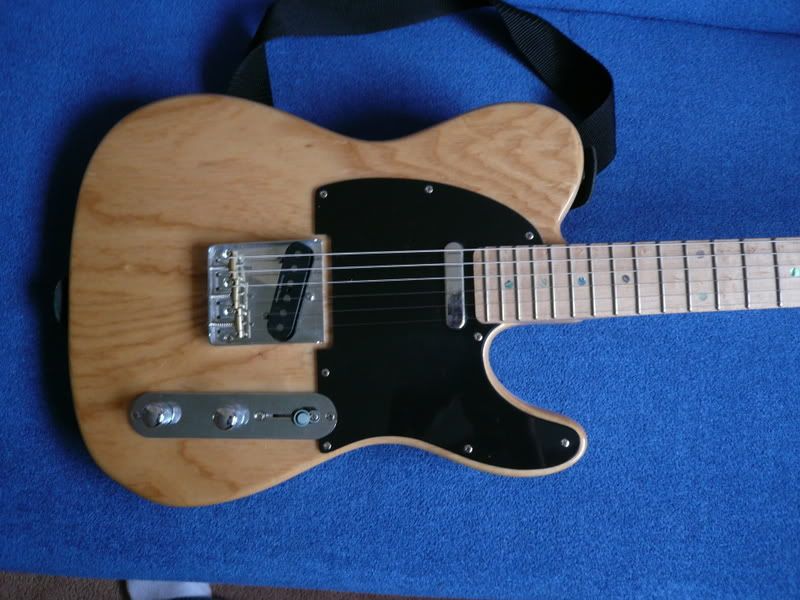13485055:Aaaron. said:
Drool. My next amp will likely be either a Bad Cat or Matchless.
I never got along with my Blues Jr., even with a good speaker. I think you need to mod them in order for them to sound good (please don't hate me). But stock, they sell well on the floor because they sound good in the bedroom. Sitting in a mix...not so much. I swapped it for a Classic 30 (scored it for $250 on Craigslist) and threw a Weber Thames in there and now it sounds very much like a small Hiwatt.
13485085:Bombogenesis said:
A lot in my room lol.. Small gigs. Less than 100 people
Some amps have a power scaling feature that lets you dial it down to 5w or 1w for bedroom playing, which makes a huge difference. The Laney Cub 15R is a great amp for this (a much better alternative to a Blues Jr. in my opinion). In short, playing 1w or 5w in a bedroom will sound more like a cranked 100w half stack than playing an actual 100w half stack with the volume at .0001.
With modern technology we have the luxury of getting a big sound in small packages, yet people still insist on crippling themselves with massive, impractical amplifiers, which inevitably end up on Craigslist at a huge loss. Don't be that guy.
13485087:Bombogenesis said:
I've heard good things about those little 15 watt tiny terrors from Orange
Take that stuff with a grain of salt. Actually, no. Be extremely fucking skeptical.
The best way to pick out an amp is to try it for yourself. Spend some quality time playing it plugged straight in. How does it respond do your style of playing? Your bending, your picking, strumming, etc. How sensitive are the controls? What type of EQ wiring does it use (there is a surprising amount of variety in how different amps utilize EQ. Rarely will you find linear controls like what you find on a stereo). How is the amp voiced? Mid scoop (Fender) or more mid-forward (Marshal)? How much clarity is in the low end? Are the highs tight and sharp (Orange) or jangly and bell-like (Vox)? When overdriven, is the gain fine like sand or course like mud? Amp aside, how well does the cab image sound and fill the room? Is it 2D or more 3D? Another thing to consider is that a guitar tone that sounds good in the bedroom sounds like crap in a live mix, and vice versa. You get the point...
Like all the metal guitarists using telecasters in the studio, most rock gods who we associate with a wall of full stacks use tiny 5w amplifiers in the studio. Do yourself a favor and stop approaching the issue in terms of "Brand X is well-liked, or used by this person on a massive stage" because it will only be a waste of your time, money, and effort. Instead approach it in terms of the sound fundamentals. Listen actively to the types of sonic traits you like and dislike, and find an amp that caters to those preferences. Not only will you inevitably find that you HATE a lot of popular gear (it happens to everyone), but you will also realize that the best gear is the one that speaks to YOU. I can sound more like Hendrix using a very different configuration than him because I'm able to most effectively translate my playing style through a particular type of gear. Chasing brands names and models rather than sonic characteristics is akin to thinking that wearing the same size boots as Wallisch will enable you to ski more like him. The only way you can ski well is if you wear boots that fit YOU.









